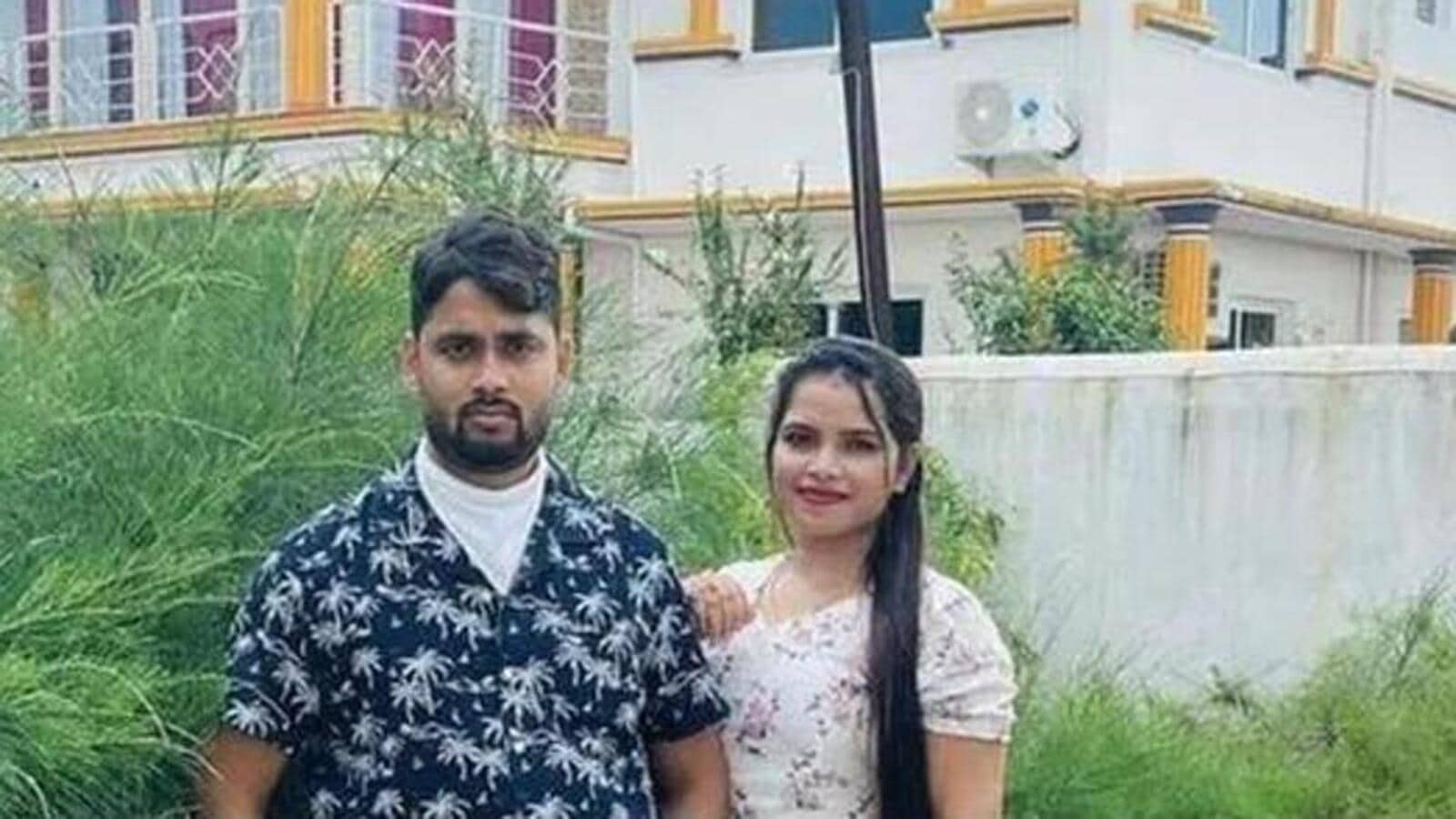In recent years, the term "Odisha Girl MMS" has sparked significant attention and debate across various platforms. This controversial topic revolves around the circulation of private content without consent, leading to serious legal, social, and ethical implications. As we delve into this issue, it is crucial to understand its origins, consequences, and the broader context surrounding it.
The rise of digital media has made it easier for individuals to share information, but it has also created challenges in safeguarding personal privacy. The "Odisha Girl MMS" incident is a prime example of how private content can be misused, causing harm to individuals involved. This article aims to provide a comprehensive overview of the matter while highlighting the importance of respecting personal boundaries and privacy rights.
Through this discussion, we will explore the background of the incident, the legal framework surrounding it, and the steps individuals can take to protect themselves in the digital age. By the end of this article, readers will have a better understanding of the issue and the measures necessary to prevent similar incidents in the future.
Read also:Conchita Alonso The Iconic Journey Of A Multifaceted Star
Table of Contents
- Background of the Incident
- Legal Implications and Rights
- Psychological Impact on Victims
- Steps to Protect Privacy
- The Role of Social Media Platforms
- Raising Public Awareness
- Long-Term Effects on Society
- Preventive Measures for the Future
- A Global Perspective on Privacy Violations
- Conclusion and Call to Action
Background of the Incident
Understanding the Origins
The "Odisha Girl MMS" incident refers to the unauthorized sharing of private content involving a young woman from Odisha, India. This breach of privacy highlights the dangers of digital platforms where personal information can be disseminated without consent. The incident gained widespread attention due to its sensitive nature and the rapid spread of the content online.
According to reports, the content was initially shared within a closed group before being leaked to a broader audience. This rapid circulation demonstrates the vulnerability of digital communication and the need for stricter regulations to prevent such incidents.
Key Facts and Statistics
Studies indicate that incidents of privacy violations have increased significantly in recent years. In India alone, there has been a 20% rise in reported cases of non-consensual sharing of intimate images. These statistics underscore the urgent need for awareness and action to combat such violations.
- Approximately 70% of victims are women, highlighting the gendered nature of privacy violations.
- Over 60% of cases involve individuals aged between 18 and 30, emphasizing the vulnerability of younger populations.
Legal Implications and Rights
Understanding the Law
In India, the Information Technology Act of 2000, along with amendments in 2008 and 2011, provides legal frameworks to address privacy violations. Section 67 of the Act criminalizes the publication or transmission of obscene material in electronic form, with penalties including imprisonment and fines.
Additionally, the Indian Penal Code (IPC) includes provisions under Section 354C, which deals with voyeurism and the non-consensual capture, sharing, or distribution of private images. These laws aim to protect individuals' rights to privacy and hold offenders accountable.
Challenges in Enforcement
Despite these legal protections, enforcement remains a challenge due to the anonymous nature of digital crimes and the lack of awareness among victims regarding their rights. Law enforcement agencies often struggle to track down offenders and ensure justice for victims.
Read also:Irvine Spectrum Movies Your Ultimate Guide To Entertainment
Psychological Impact on Victims
Emotional and Mental Health Consequences
Victims of privacy violations often experience severe emotional distress, including anxiety, depression, and social isolation. The fear of judgment and stigma can lead to long-term psychological effects, impacting their personal and professional lives.
Research conducted by mental health organizations reveals that victims of such incidents are three times more likely to develop mental health disorders compared to the general population. This highlights the critical need for support systems to address the psychological impact of privacy violations.
Steps to Protect Privacy
Best Practices for Digital Safety
Individuals can take proactive steps to protect their privacy in the digital age. Some key recommendations include:
- Using strong, unique passwords for all online accounts.
- Enabling two-factor authentication to enhance account security.
- Avoiding the sharing of sensitive information or images with untrusted individuals.
Utilizing Privacy Settings
Most social media platforms offer privacy settings that allow users to control who can view their content. By adjusting these settings, individuals can limit the visibility of their personal information and reduce the risk of unauthorized sharing.
The Role of Social Media Platforms
Responsibility of Platforms
Social media platforms play a crucial role in addressing privacy violations. They must implement robust mechanisms to detect and remove illegal content promptly. Additionally, platforms should provide clear guidelines and tools for users to report violations and seek assistance.
Collaboration with Law Enforcement
Platforms must collaborate with law enforcement agencies to investigate and prosecute offenders. This collaboration is essential to deter future violations and ensure justice for victims.
Raising Public Awareness
Educational Campaigns
Public awareness campaigns can play a vital role in educating individuals about the risks of privacy violations and the importance of consent. Schools, communities, and organizations can organize workshops and seminars to promote digital literacy and responsible online behavior.
Media Responsibility
Media outlets have a responsibility to report such incidents responsibly, avoiding sensationalism and respecting the privacy of victims. By focusing on the broader implications and solutions, the media can contribute to a more informed and empathetic society.
Long-Term Effects on Society
Changing Social Norms
The prevalence of privacy violations has the potential to alter social norms and attitudes towards personal privacy. As society becomes more aware of these issues, there is an opportunity to foster a culture of respect and accountability in digital interactions.
Policy Implications
Governments and regulatory bodies must continuously evaluate and update policies to address emerging challenges in the digital landscape. This includes strengthening privacy laws, enhancing enforcement mechanisms, and promoting international cooperation to combat cross-border privacy violations.
Preventive Measures for the Future
Innovative Technologies
Advancements in technology can offer new solutions to prevent privacy violations. For instance, encryption tools and secure messaging platforms can help safeguard personal communications. Additionally, artificial intelligence can be employed to detect and flag potentially harmful content before it is shared.
Community Engagement
Engaging communities in discussions about privacy and consent can foster a sense of collective responsibility. By encouraging open dialogue and collaboration, society can work towards creating a safer digital environment for all individuals.
A Global Perspective on Privacy Violations
International Trends
Privacy violations are not limited to a single region or country. Across the globe, similar incidents occur, highlighting the universal nature of this issue. By examining international trends and best practices, countries can learn from one another and develop more effective strategies to combat privacy violations.
Cross-Border Collaboration
Given the global nature of digital communication, cross-border collaboration is essential to address privacy violations. International agreements and partnerships can facilitate information sharing, law enforcement cooperation, and the development of standardized protocols for handling such cases.
Conclusion and Call to Action
In conclusion, the "Odisha Girl MMS" incident serves as a stark reminder of the importance of respecting personal privacy in the digital age. By understanding the legal, social, and psychological implications of such violations, individuals and society can take meaningful steps to prevent similar incidents in the future.
We urge readers to take action by educating themselves and others about digital safety, supporting victims of privacy violations, and advocating for stronger policies and protections. Together, we can create a safer and more respectful digital environment for everyone.
Share this article with your network, leave a comment with your thoughts, and explore other resources on our website to deepen your understanding of this critical issue.



